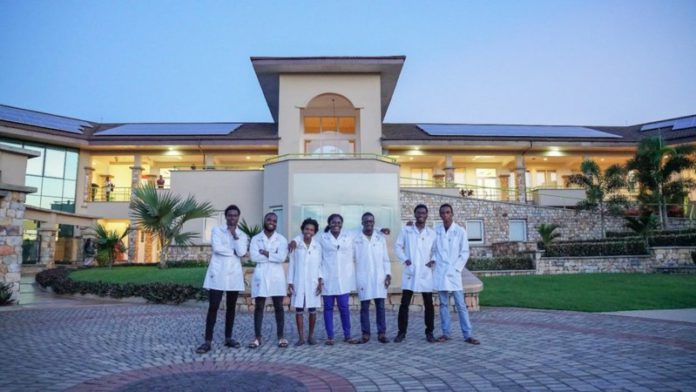Ashesi was ranked first in Ghana, ninth in Africa, and among the world’s top 400, in the 2020 Global Times Higher Education (THE) University Impact Rankings.
The Impact Rankings measure the actions taken by higher education institutions to realise the United Nations’ 17 Sustainable Development Goals (SDGs) around the world, and contributions to the world’s economic and social well-being.
Other Ghanaian universities accepted to the 2020 rankings list, were the University of Ghana and the University of Professional Studies, Accra.
Ashesi moved up in the rankings, despite an additional 299 universities joining the list, breaking into Africa’s top 10 (from 2019’s joint ranking of 14th place with the University of Ghana and the University of Professional Studies, Accra), and ranked within the top 400 universities on the list of 766 universities from 85 countries.
Ashesi’s strongest contributions were to the SDG 1 Goal of No Poverty, with the University being ranked 24th globally in our work to end poverty.
Other areas of strength for Ashesi, were in contributions to Gender Equality (SDG 5), Affordable and Clean Energy (SDG 7) and Partnerships for the Goals (SDG 17).
“We believe that universities are our greatest hope of solving some of the world’s biggest challenges,” says Phil Baty, Chief Knowledge Officer at Times Higher Education.
“These rankings prove that traditional barriers to success like (institutional) wealth or research prestige don’t matter when it comes to doing great things for sustainability. It’s clear that universities give us a lot to be hopeful for.”
Ashesi’s overall ranking was driven by contributions to:
- SDG 1 – No Poverty
- SDG 5 – Gender Equality
- SDG 6 – Clean Water & Sanitation
- SDG 7 – Affordable & Clean Energy
- SDG 17 – Partnerships for the goals.
The University received especially strong commendation in the areas of:
- Providing scholarships
- Engagement in anti-poverty projects by the University community
- The establishment of lifelong learning measures
- Providing opportunities to first-generation students
- The percentage of senior academics who are women
- Percentage of women within the student community, and measures to help them succeed.
- Measures in place to increase access for all students
- Water reuse strategies and systems
- Efficiency of energy use on campus, and community activities around energy
- Measures put in place to reduce discrimination
- Education for the Sustainable Development Goals

